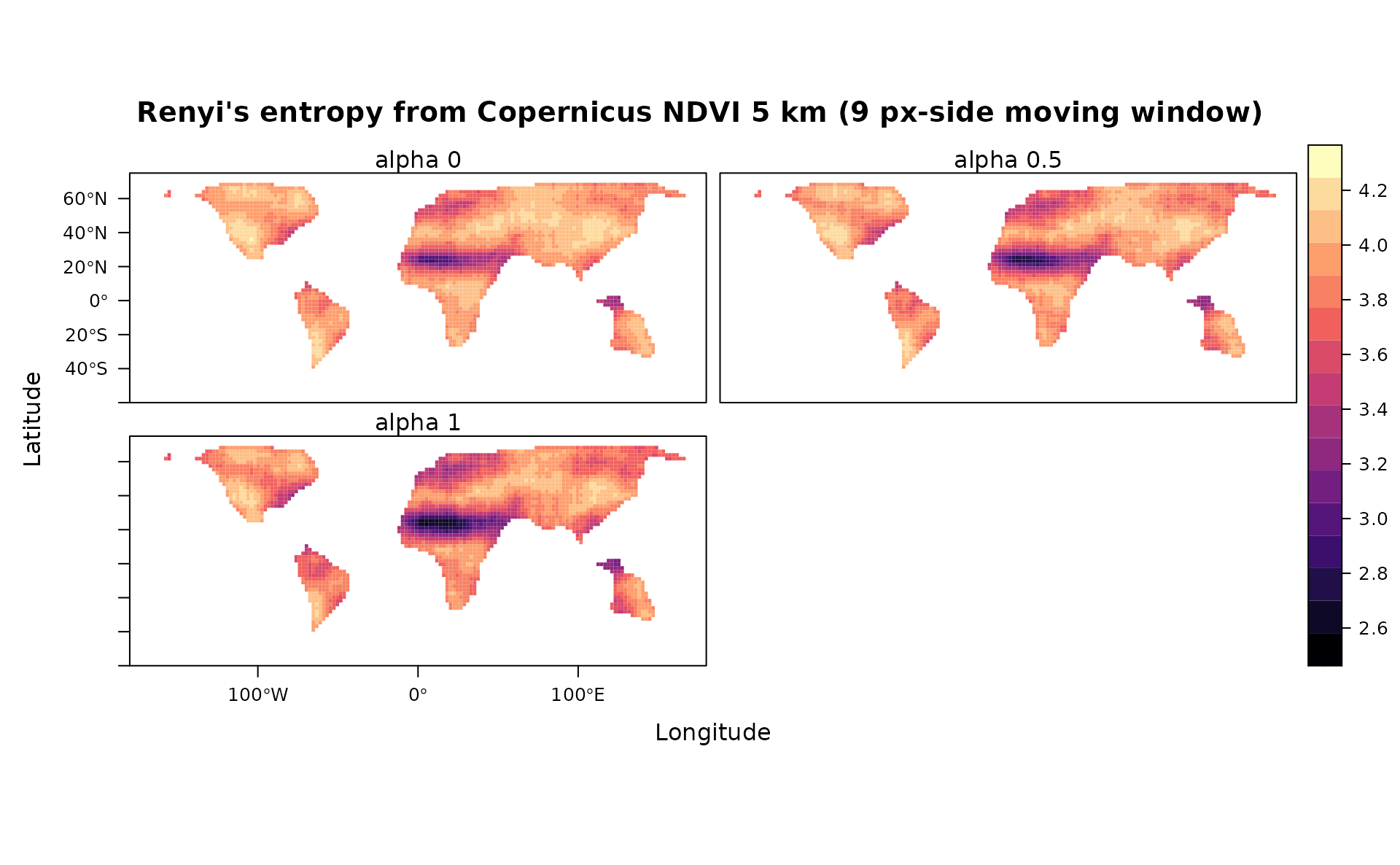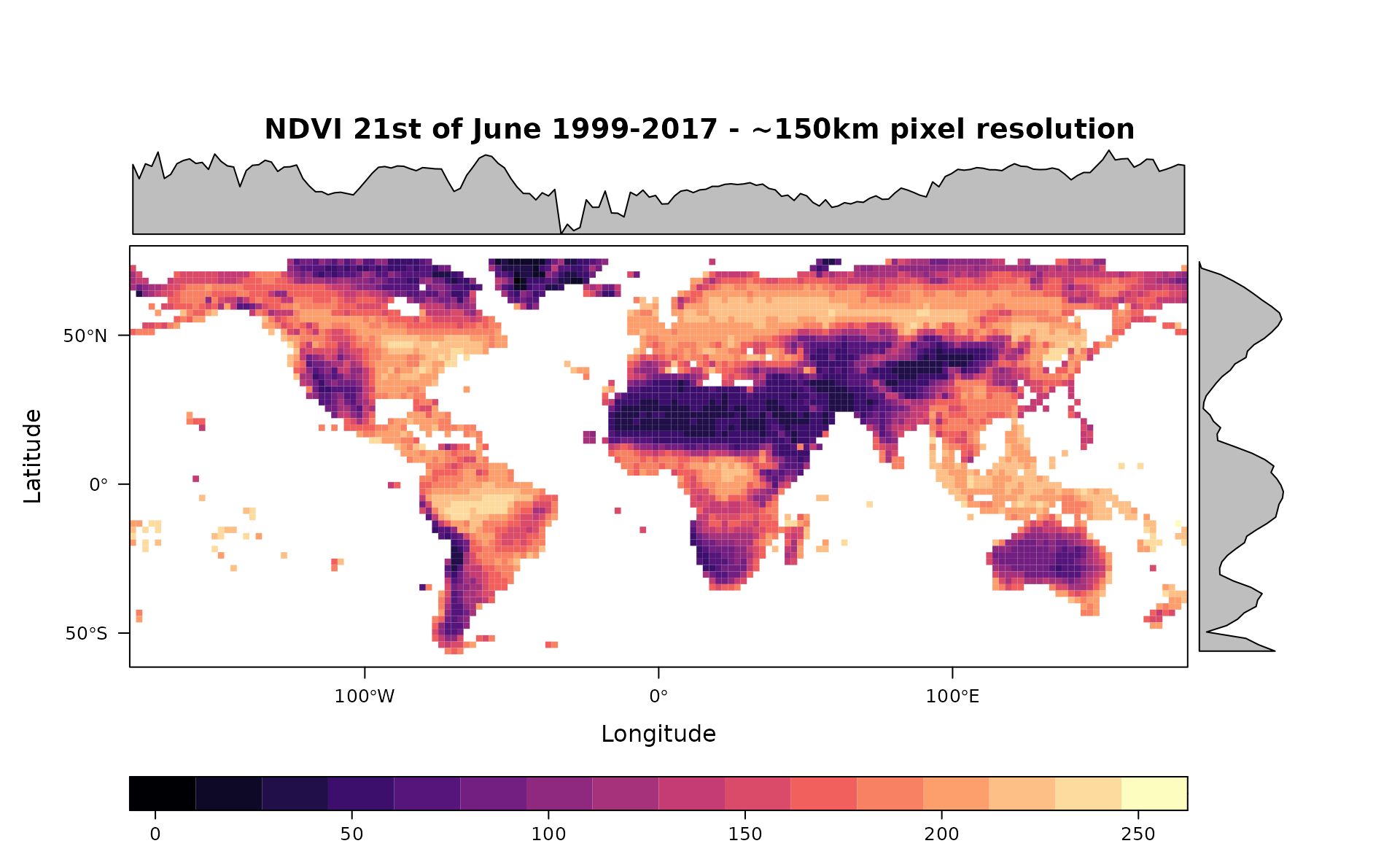Indices of diversity from NDVI.
Matteo Marcantonio, Duccio Rocchini
2023-05-10
Source:vignettes/rasterdiv_basics.Rmd
rasterdiv_basics.RmdThis vignette uses rasterdiv to build global series of indices of diversity based on Information Theory. The input dataset is the Copernicus Long-term (1999-2017) average Normalised Difference Vegetation Index for the 21st of June (copNDVI).
Overview
A RasterLayer called copNDVI is loaded together with the package
rasterdiv. copNDVI is a 8-bit raster, meaning
that pixel values range from 0 to 255. You could stretch it to
match a more familiar (-1,1) values range using
raster::stretch(copNDVI,minv=-1,maxv=1) .
Reclassify NDVI
Pixels with values 253, 254 and 255 (water) will be set as NA’s.
copNDVI <- raster::reclassify(copNDVI, cbind(252,255, NA), right=TRUE)Resample NDVI to a coarser resolution
To speed up the calculation, the RasterLayer will be “resampled” at a resolution 10 times coarser than original and cut on Africa.
#Resample using raster::aggregate and a linear factor of 20
copNDVIlr <- raster::aggregate(copNDVI, fact=30)
#Set float numbers as integers to further speed up the calculation
storage.mode(copNDVIlr[]) = "integer"Compute all indexes in rasterdiv
rasterdiv allows the computation of 8 diversity
indexes based on information theory. In the following section, all these
indexes will be computed for copNDVIlr using a moving window of
81 pixels (9 px side). Alpha values for the Hill, Rényi and parametric
Rao indexes will be set from 0 to 2 every 0.5. In addition, we will set
na.tolerance=0.1, meaning that all moving windows with more
than 10% of pixels equal NA will be set to NA.
#Shannon's Diversity
sha <- Shannon(copNDVIlr,window=9,na.tolerance=0.2,np=1)
#Pielou's Evenness
pie <- Pielou(copNDVIlr,window=9,na.tolerance=0.2,np=1)
#Berger-Parker's Index
ber <- BergerParker(copNDVIlr,window=9,na.tolerance=0.2,np=1)
#Parametric Rao's quadratic entropy with alpha ranging from 1 to 5
prao <- paRao(copNDVIlr, window=9, alpha=1:3, na.tolerance=0.2, dist_m="euclidean",np=1)
#Cumulative Residual Entropy
cre <- CRE(copNDVIlr,window=9,na.tolerance=0.2, np=1)
#Hill's numbers
hil <- Hill(copNDVIlr,window=9,alpha=seq(0,1,0.5),na.tolerance=0.2,np=1)
#Rényi's Index
ren <- Renyi(copNDVIlr,window=9,alpha=seq(0,1,0.5),na.tolerance=0.2,np=1)Visualise RasterLayers (the shape of continents is deformed by the NAs in the 9x9 moving windows)
#Shannon's Diversity
levelplot(sha,main="Shannon's entropy from Copernicus NDVI 5 km (9 px-side moving window)",as.table = T,layout=c(0,1,1), ylim=c(-60,75), margin = list(draw = TRUE))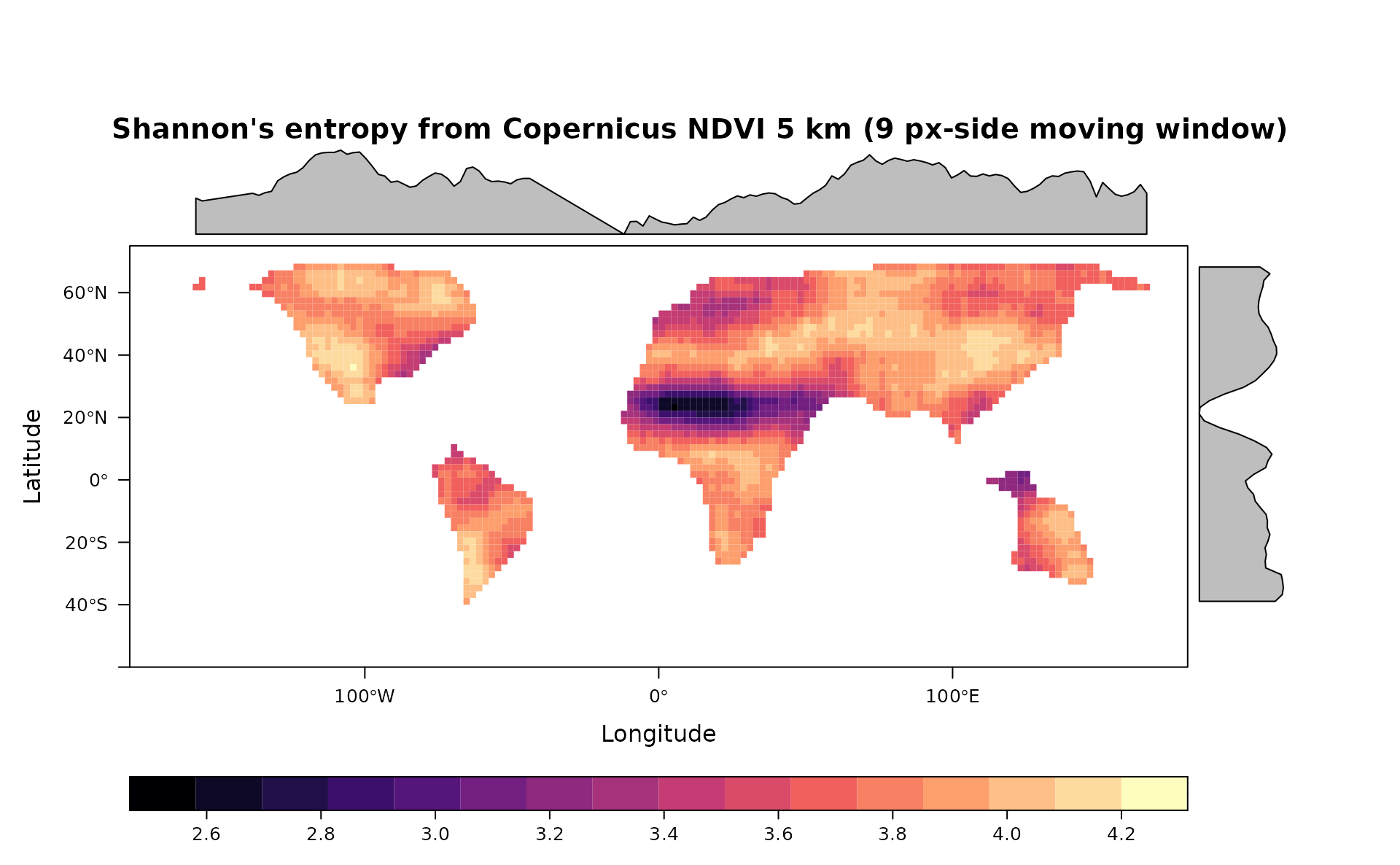
#Pielou's Evenness
levelplot(pie,main="Pielou's evenness from Copernicus NDVI 5 km (9 px-side moving window)",as.table = T,layout=c(0,1,1), ylim=c(-60,75), margin = list(draw = TRUE))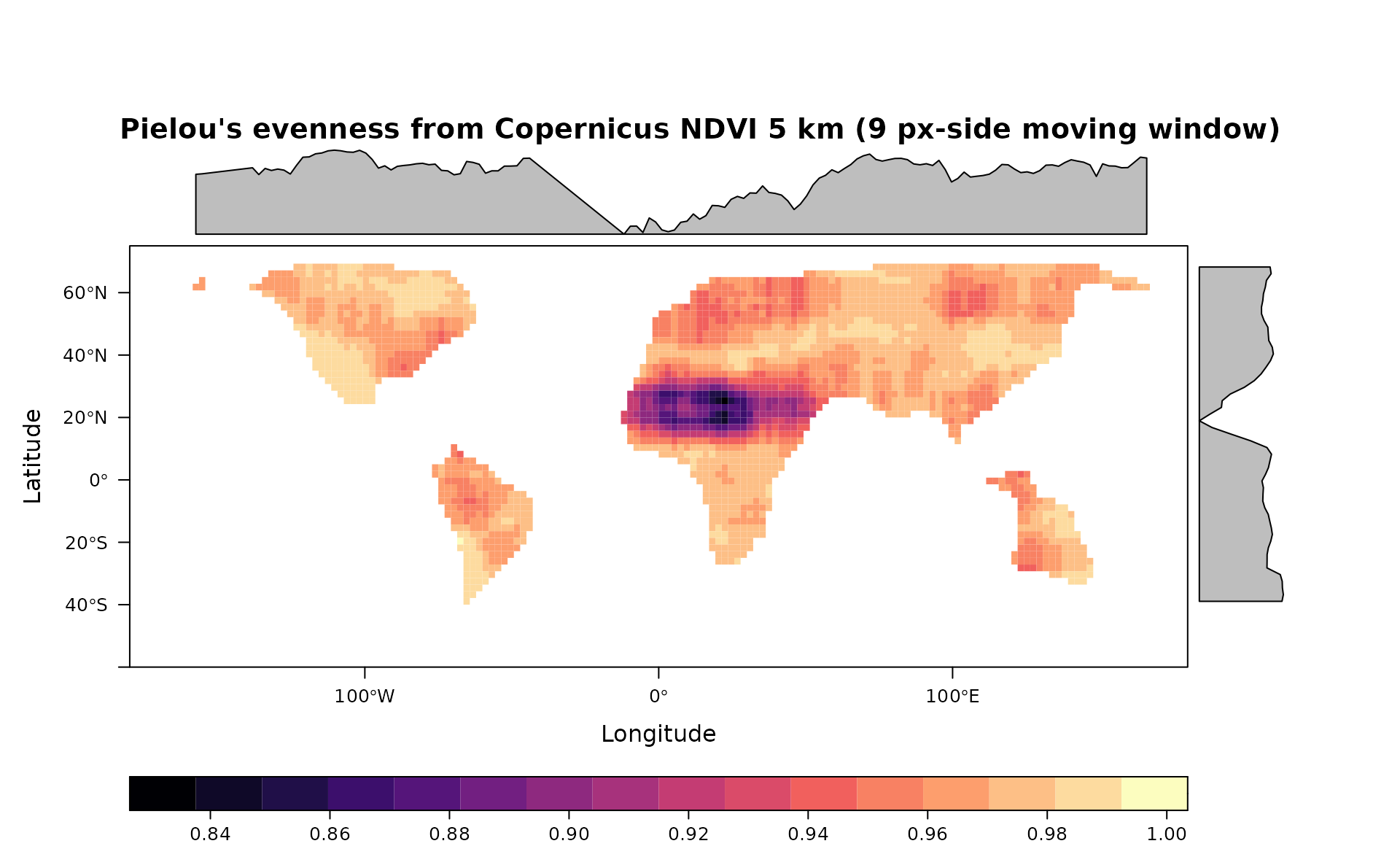
#Berger-Parker' Index
levelplot(ber,main="Berger-Parker's index from Copernicus NDVI 5 km (9 px-side moving window)",as.table = T,layout=c(0,1,1), ylim=c(-60,75), margin = list(draw = TRUE))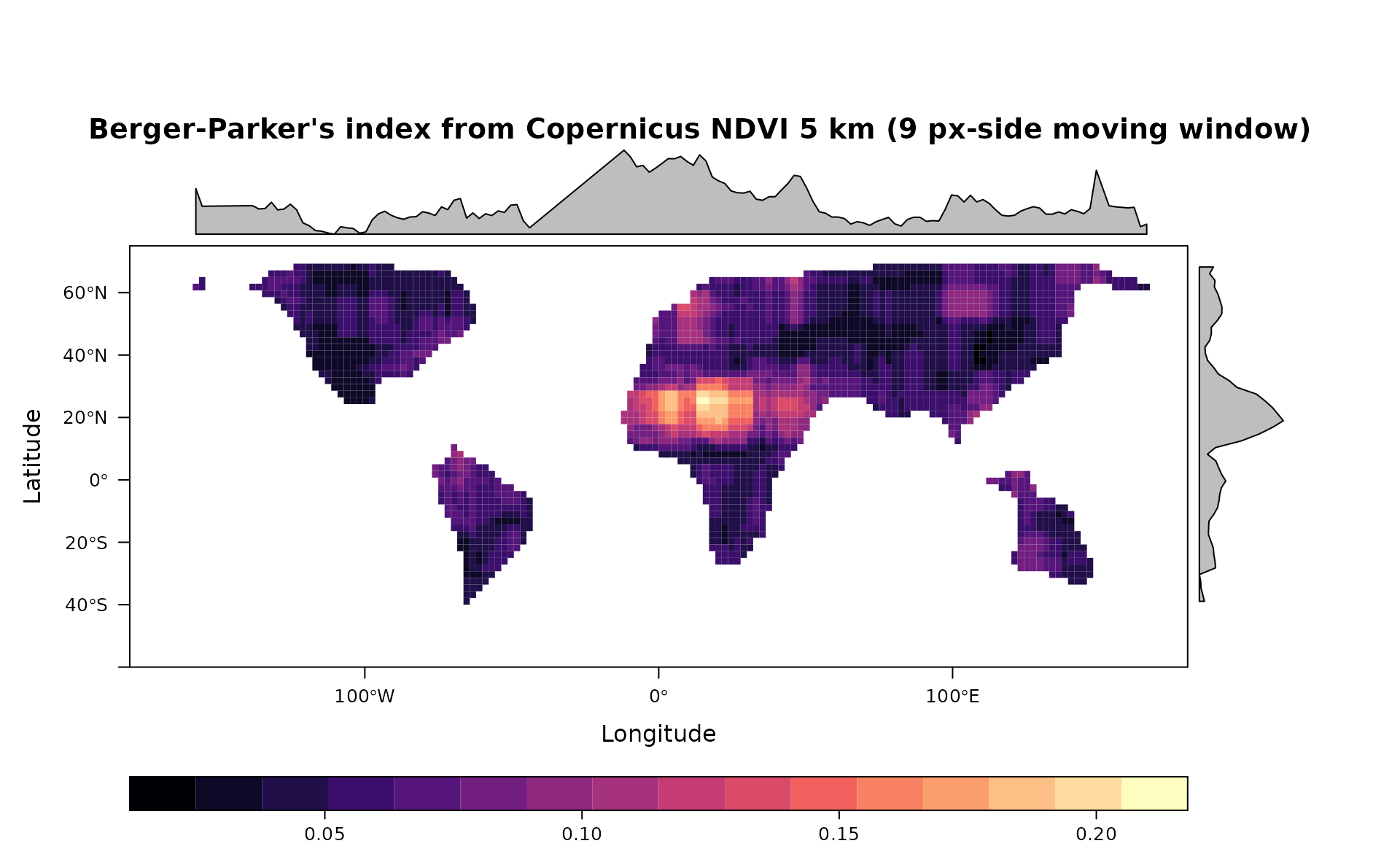
#Parametric Rao's quadratic Entropy
levelplot(stack(prao[[1]]),main="Parametric Rao's quadratic entropy from Copernicus NDVI 5 km (9 px-side moving window)",as.table = T,layout=c(0,3,1), ylim=c(-60,75), margin = list(draw = TRUE))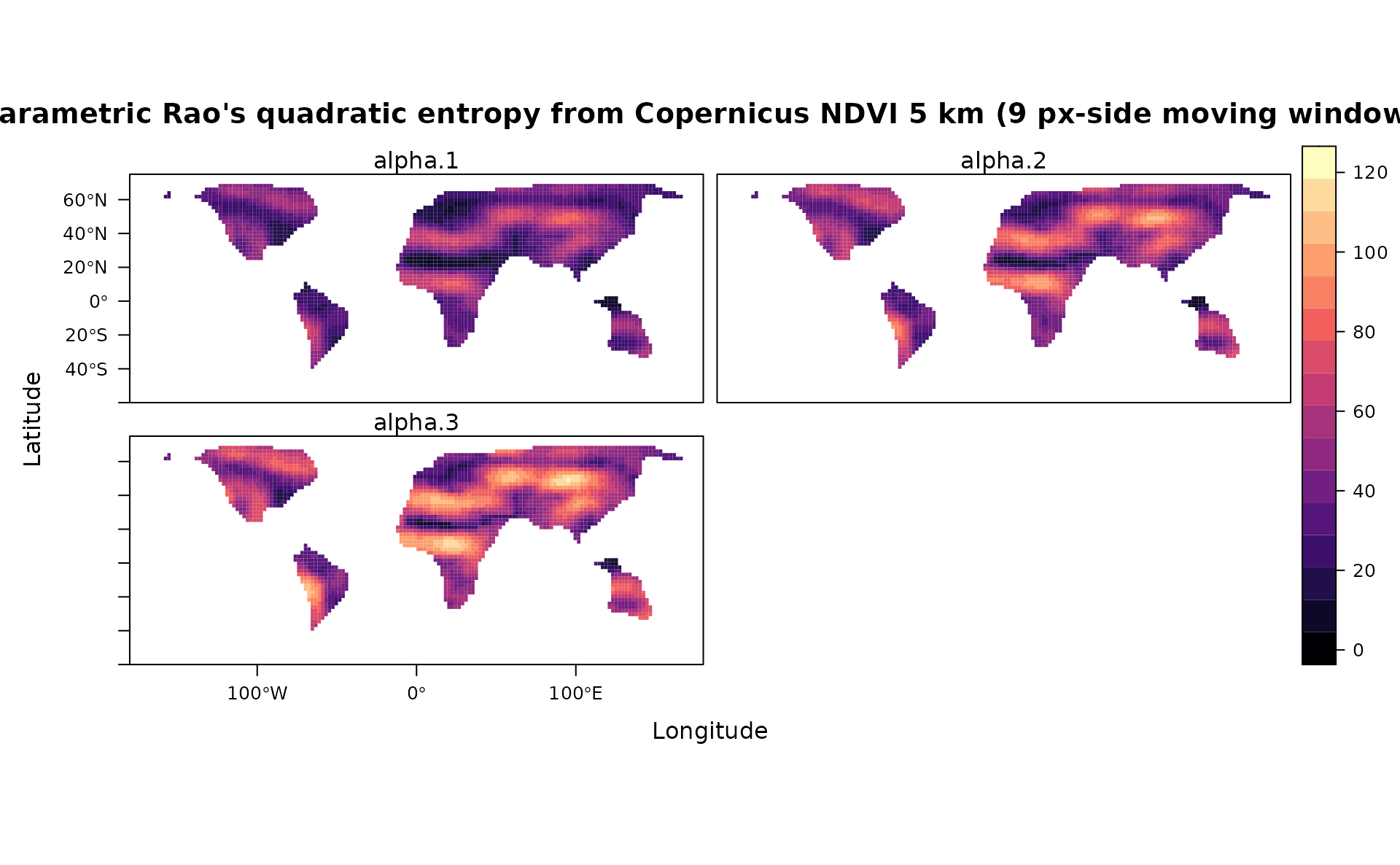
#Cumulative Residual Entropy
levelplot(cre,main="Cumulative Residual Entropy from Copernicus NDVI 5 km (9 px-side moving window)",as.table = T,layout=c(0,1,1), ylim=c(-60,75), margin = list(draw = TRUE))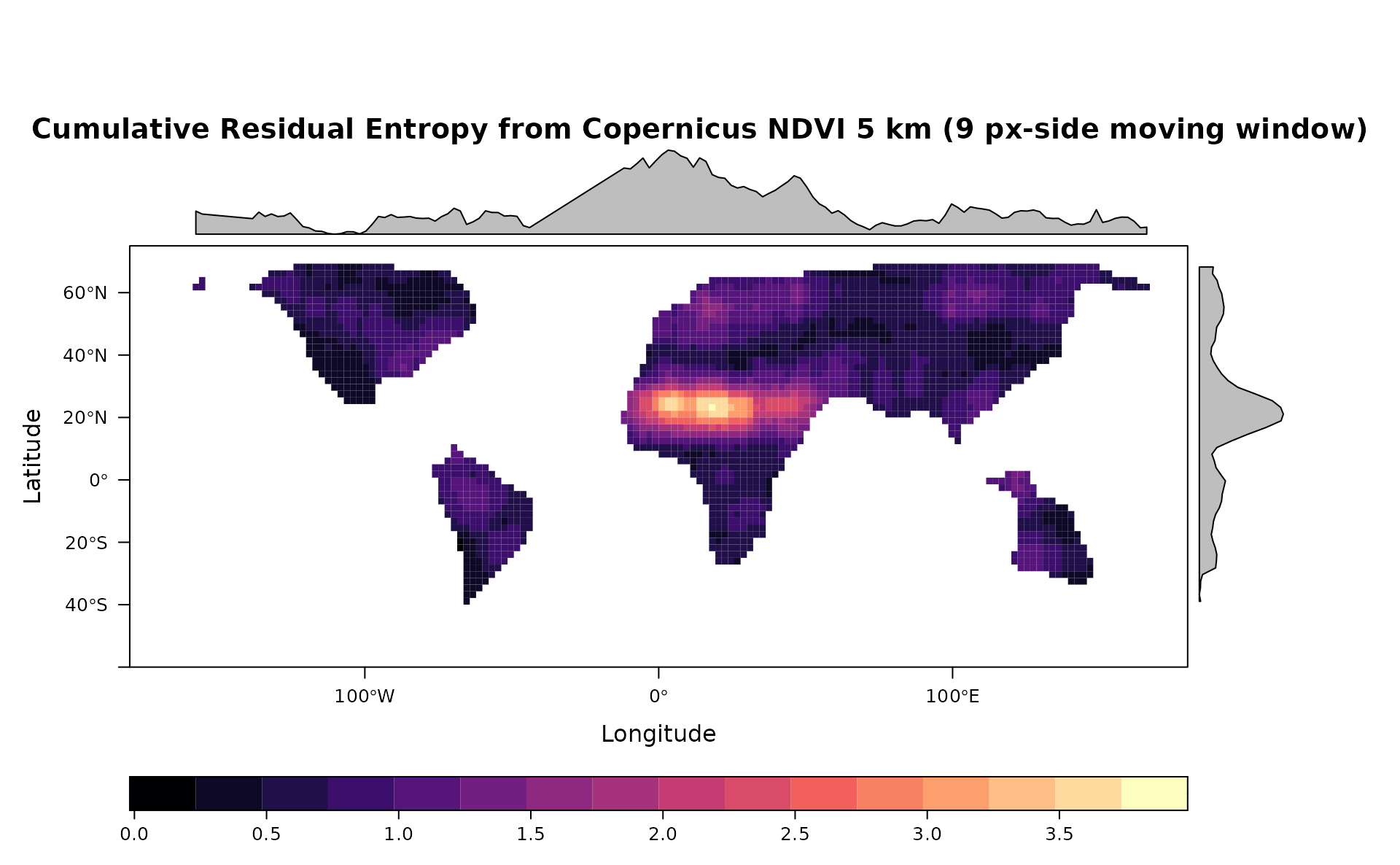
#Hill's numbers (alpha=0, 0.5 and 1)
levelplot(stack(hil),main="Hill's numbers from Copernicus NDVI 5 km (9 px-side moving window)",as.table = T,layout=c(0,3,1), ylim=c(-60,75))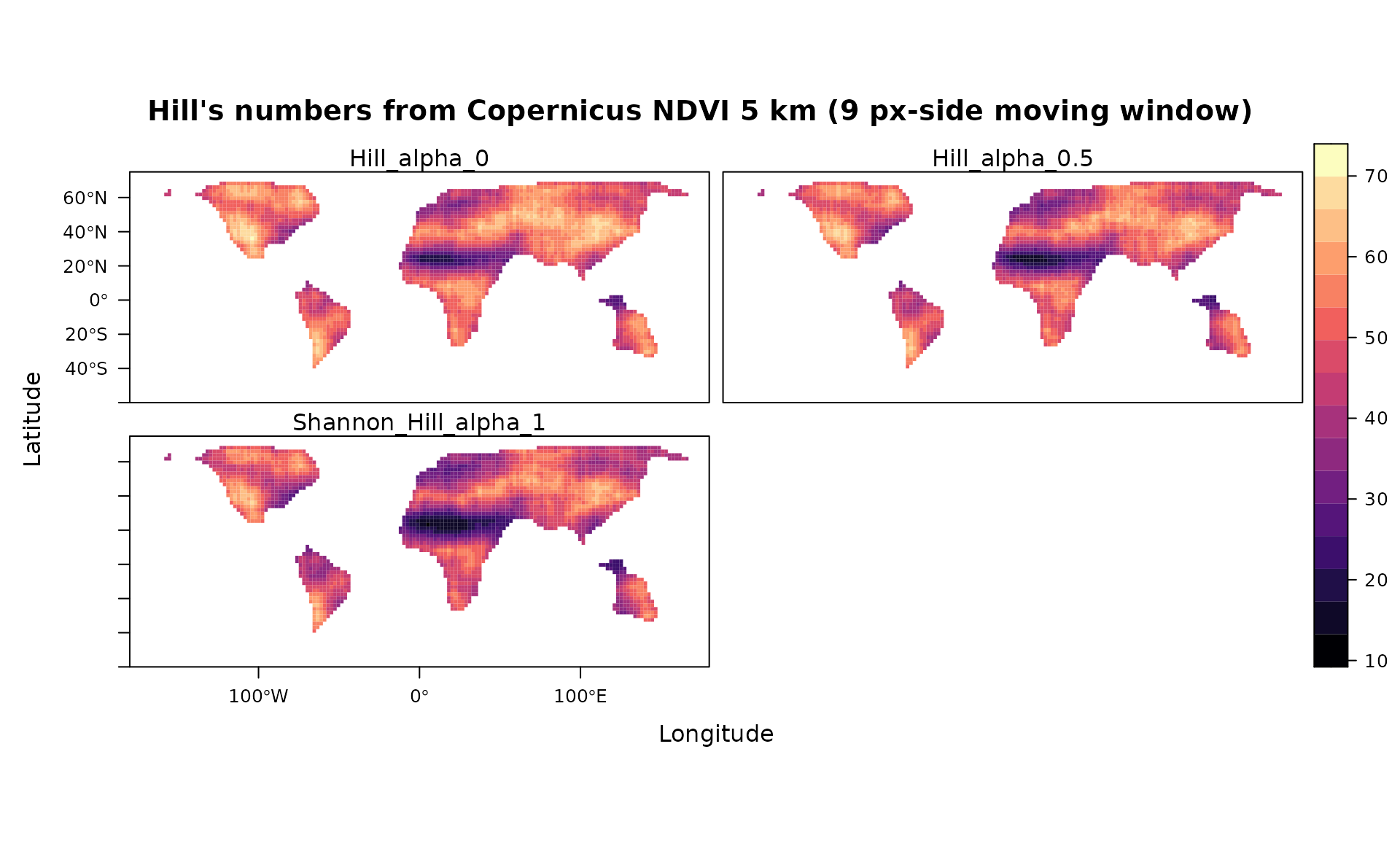
#Renyi' Index (alpha=0, 0.5 and 1)
levelplot(stack(ren),main="Renyi's entropy from Copernicus NDVI 5 km (9 px-side moving window)",as.table = T,layout=c(0,3,1),names.attr=paste("alpha",seq(0,1,0.5),sep=" "), ylim=c(-60,75), margin = list(draw = FALSE))